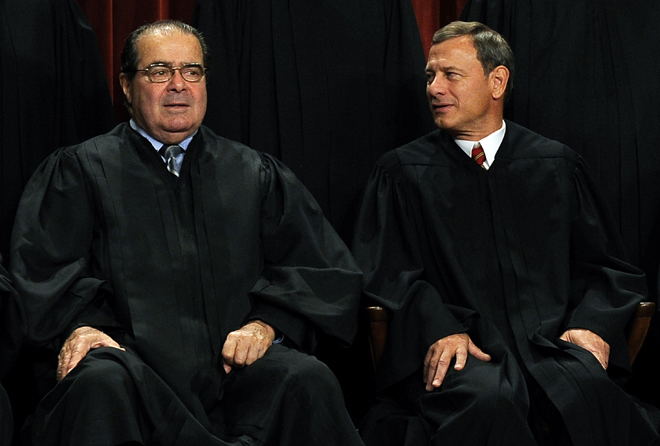In weighing the constitutionality of the health care law’s individual mandate, and possibly in deciding what to do with the rest of the law if they strike that provision, Supreme Court justices will have to confront key questions of health policy: What purpose does the mandate serve? How connected is it to other measures in the law? If those other measures must fall, too, what’s left? And is that new, diminished law the sort of policy that Congress might have passed if the mandate had proved politically infeasible in the first place?
That’s a troubling reality for reform supporters.
After oral arguments Tuesday — over the constitutionality of the mandate — and Wednesday morning — over how much of the law should stand if the mandate falls — conservative-leaning justices revealed a persistent lack of knowledge about the health care and health insurance markets, the structure of the law and its myriad provisions that have nothing to do with the mandate.
At a number of junctures Tuesday, justices seemed confused — or willfully obtuse — about the nature of risk pooling, and the health insurance market.
Solicitor General Donald Verrilli Jr. found himself at pains to emphasize two key points: that basically everybody is or will be in the health care market by virtue of being human, and that uninsured people who don’t or can’t pay their bills increase the cost of care — and therefore of insurance — for everybody else. Put the uninsured in the risk pool, and that cost-shifting goes away.
Whether they were playing devil’s advocates, or simply unaware of the differences between insurance and other many other products, this fact seemed to elude the justices.
“If people don’t buy cars, the price that those who do buy cars pay will have to be higher,” said Justice Antonin Scalia. On a basic level, this gets supply and demand backward. But as Brookings Institution economist Henry Aaron noted, even if you give Scalia the benefit of the doubt, he still betrayed ignorance of health-policy basics.
“This response was and is bad economics,” Aaron wrote. “It is true that every commodity is produced along what economists call a ‘cost curve’ — raising output may lower average or marginal unit costs by spreading overhead or achieving economies of scale, but it may also raise costs by forcing up the cost of inputs or incurring diseconomies of scale. None of this occasions concerns about fairness or free-loading or, to use the economist’s term, ‘externalities.’ But the cost shifting that occurs when uninsured patients fail to pay their bills does; it causes one group — the insured — to have to pay part of the cost of services others use.”
Beyond that, as health policy expert Kevin Outterson noted, the justices based many of their questions on the assumption that all insurance functions identically. Justice Samuel Alito in particular compared health insurance to burial insurance.
“If a healthy person stays out of the pool, the average costs for those left in the pool are higher,” Outterson wrote. “That’s not true for underwritten insurance products (such as life or auto).”
These facts are key to judgments about the uniqueness of the health care and insurance markets. They’re also key to understanding what the consequences of striking the mandate are if they deem it unconstitutional despite that uniqueness.
We know that Scalia thinks the whole law should fall if the mandate falls, because he said so explicitly. But his contention is that the mandate the the heart of the law, and if the heart of the law falls, the whole law should go with it. In other words, the coverage guarantee, and subsidies, and insurance marketplaces and Medicaid expansion, and Medicare reforms, and so on are largely incidental.
Perhaps Scalia was simply revealing bias against the law. And no doubt the mandate is a crucial piece of it. But two other eyebrow-raising comments he made suggests he and other justices might not be all that familiar with the multitudes it contains.
Scalia famously mocked the “Cornhusker kickback” — a legislative horse-trade designed to win Sen. Ben Nelson’s (D-NE) vote — as if it had survived in the final law. It did not. Conversely the law contains scores of major policy changes completely independent of the mandate — some of which might surprise Scalia and his colleagues if they dove into the statute.
“What happened to the Eighth Amendment?” Scalia asked rhetorically. “You really want us to go through these 2,700 pages? And do you really expect the court to do that? Or do you expect us to give this function to our law clerks?”










